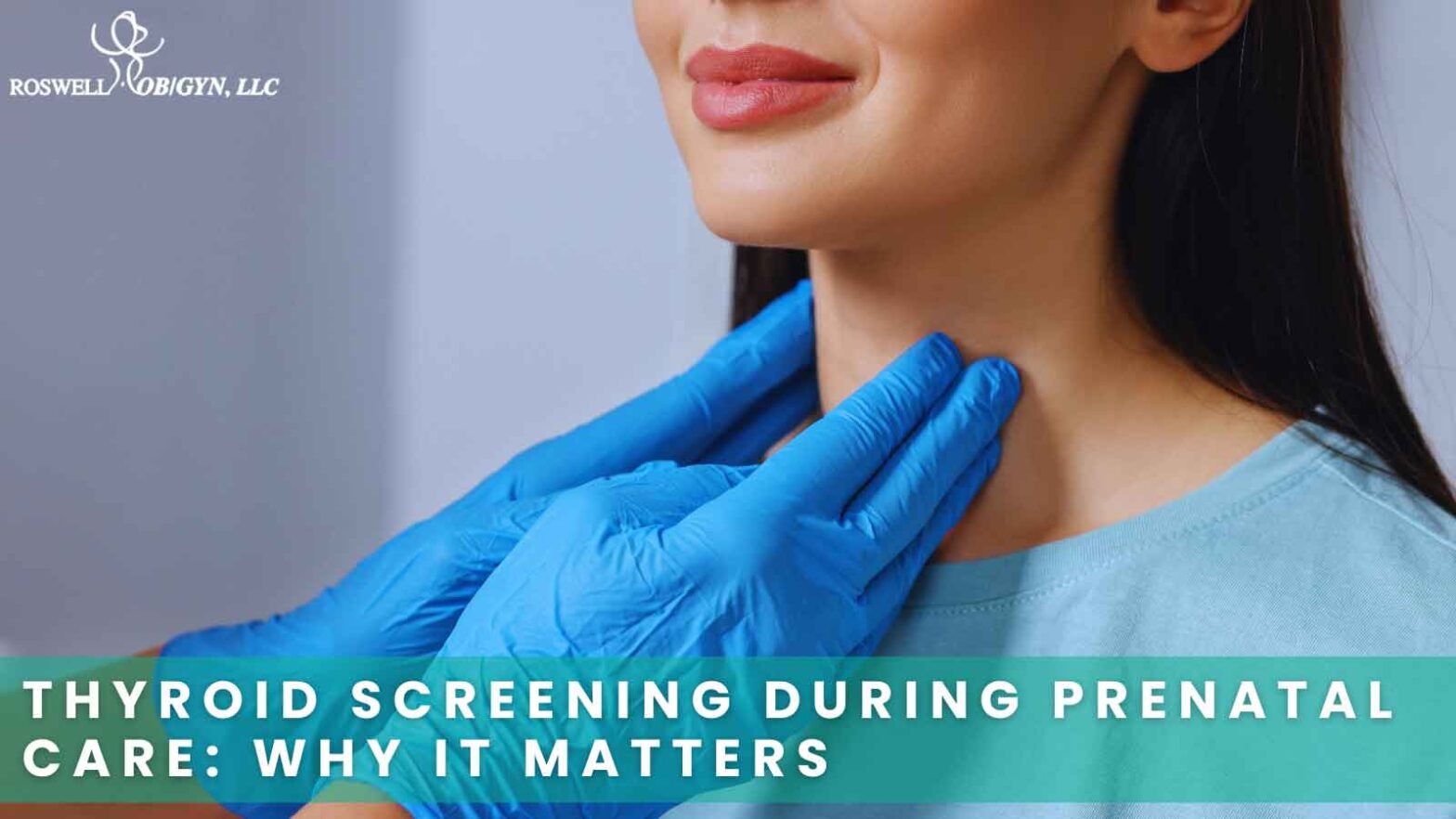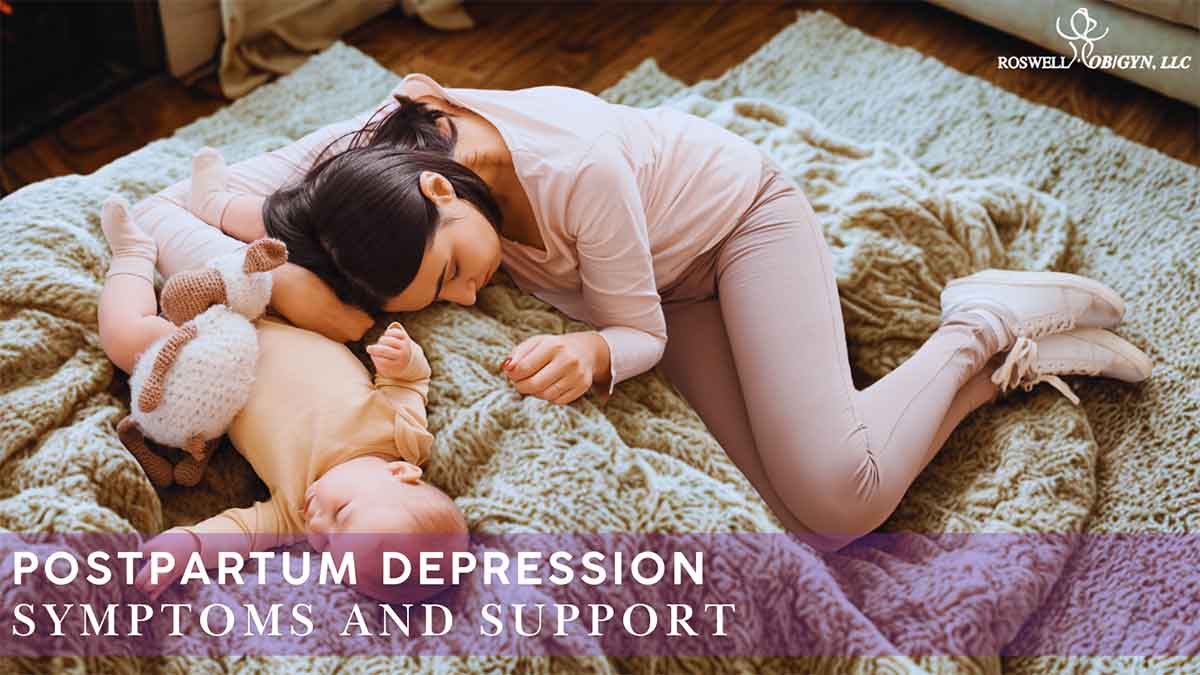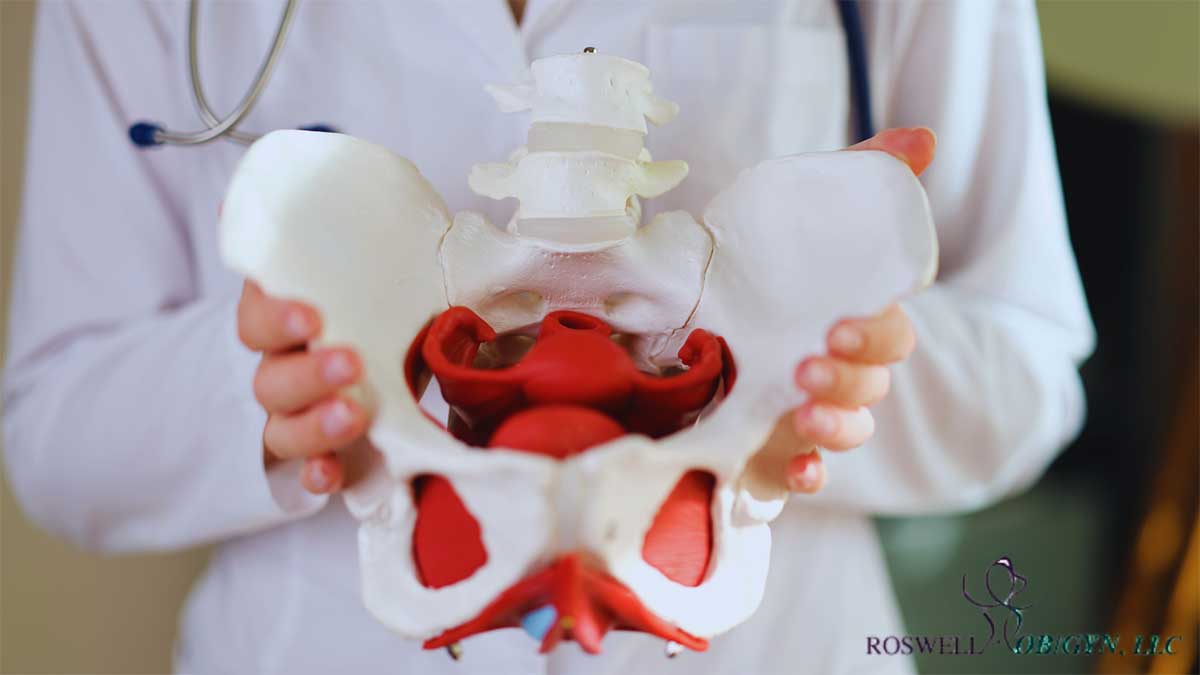Your age plays the single most crucial role in your ability to conceive and carry a healthy pregnancy to term. Understanding how fertility naturally shifts over time empowers you to make informed decisions about your reproductive future. Knowing what happens to your body as you age gives you the knowledge to take control of your […]
Thyroid Screening During Prenatal Care: Why It Matters
Your thyroid might be small, but during pregnancy, it takes on a big job. This butterfly-shaped gland helps regulate hormones that support your baby’s brain development, growth, and your own energy and wellbeing. When thyroid function is off balance, it can quietly affect fertility, increase risks during pregnancy, and even impact your baby’s health after […]
Postpartum Depression: Symptoms and Support
Postpartum depression is a serious medical condition affecting 10–15% of new mothers. It extends beyond the emotional fluctuations of childbirth and presents as persistent sadness, fatigue, anxiety, and difficulty bonding with the baby. These PPD symptoms can impair daily functioning and maternal health if left unaddressed. Prompt recognition and intervention are essential for reducing long-term […]
When to See an OBGYN for PCOS
Polycystic Ovary Syndrome (PCOS) affects roughly 1 in 10 women of reproductive age, yet its symptoms, such as irregular periods, persistent acne, and unexplained weight gain, are often overlooked. If your periods stop for three or more months, you develop sudden, severe acne after age 25, or you experience rapid weight gain around the midsection, […]
Hormone Replacement Therapy: Risks and Benefits
Hormone Replacement Therapy (HRT) is a widely used medical treatment designed to restore declining hormone levels, particularly in women going through perimenopause or menopause, or experiencing hormone-related disorders. As estrogen and progesterone levels drop, many women face symptoms that disrupt quality of life, including hot flashes, night sweats, mood changes, sleep disturbances, and vaginal discomfort. […]
Breast Changes During Pregnancy Explained
Pregnancy brings a wide range of physical changes, and for many women, the first signs show up in the breasts. These early shifts in shape, texture, and sensitivity are driven by hormonal changes that prepare the body for breastfeeding. Understanding these developments is more than just curiosity—it’s part of informed, proactive care. This guide explains […]
How to Spot Signs of a UTI and When to See an OBGYN
Compared to men, women are more susceptible to recurring urinary tract infections (UTIs). They can, at best, be uncomfortable. However, if left untreated, they may lead to complications that are harder to treat. Hence, in women’s reproductive health, it is critical to spot and treat UTIs promptly. This guide will teach you how to recognize […]
The Link Between Pelvic Floor Health and Overall Well-Being: Insights from Your OBGYN
The pelvic floor plays a central role in women’s health by maintaining core stability and regulating bladder, bowel, and sexual function. When these muscles are impaired, the effects can be widespread, impacting comfort, daily mobility, and recovery after childbirth. Fortunately, early recognition and treatment can restore function and improve long-term health. Many women experience pelvic […]
Cervical Cancer Prevention: How Regular Screenings Save Lives
Cervical cancer remains one of the most preventable and treatable cancers when detected early. Regular screenings, including Pap tests and HPV testing, are essential in identifying precancerous changes before they develop into cancer. However, many women delay or avoid screenings with their OB-GYN due to fear, lack of symptoms, busy schedules, or concerns about discomfort. […]
Vaginal Health Tips: Maintaining Balance and Preventing Infections
Vaginal infections are more than just an inconvenience—they can cause itching, irritation, and the stress of recurring problems, all of which impact your comfort and confidence. These issues often stem from imbalances in the vaginal ecosystem, leading to conditions like yeast infections, bacterial vaginosis, or urinary tract infections (UTIs). You’re far from alone if you’ve […]









